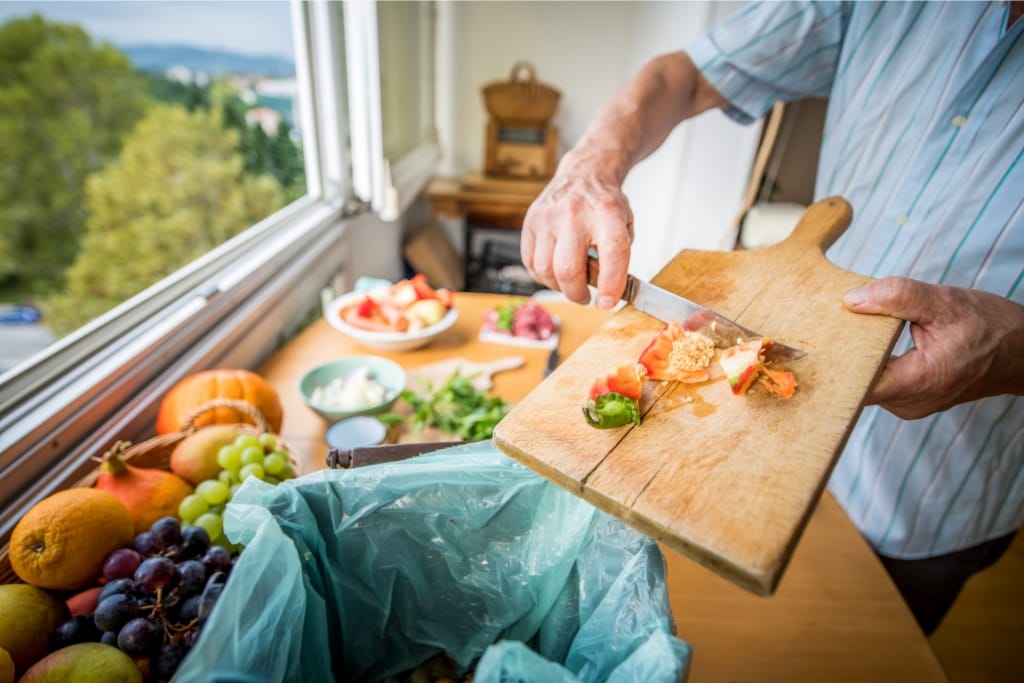Recycling at home doesn't have to be complicated; it can be an easy and rewarding part of your daily routine.
With a few simple changes, you can make a big impact on the environment and contribute to a more sustainable future.
Start by setting up efficient systems that work for your space and lifestyle, and learn some quick tips to make sorting and organizing recyclables a breeze.
Ready to transform your recycling habits for the better?
Let's uncover practical strategies that will simplify the process and keep you motivated on your sustainability journey.
1)) Set Up A Dedicated Recycling Station
Creating a dedicated recycling station is an essential step toward simplifying your home's recycling process.
Choose a convenient location, such as the kitchen or garage, where sorting materials can become a natural part of your routine.
Equip your station with clearly labeled bins for different types of recyclables—like paper, plastics, and glass—to make separation straightforward.
To enhance efficiency, consider adding a compost bin for organic waste and a space for reusable items.
By keeping your recycling area organized and accessible, you'll find it easier to incorporate recycling into your daily habits, fostering a cleaner and more sustainable living environment.
2)) Educate Yourself On What Can Be Recycled
Understanding what can be recycled is crucial for effective recycling at home.
Not all materials are accepted by recycling programs, so familiarizing yourself with the specific guidelines of your local recycling center is important.
Start by researching the types of plastic, paper, metals, and glass that are commonly accepted in your area.
Many centers have resources such as brochures or online guides to help you identify recyclable materials.
Stay informed about common contaminants, like food residue or certain plastics, which can compromise the recycling process.
By taking the time to educate yourself, you can ensure that your efforts are making a meaningful impact and avoid contaminating the recycling stream, thus supporting your journey to a more environmentally conscious lifestyle.
3)) Invest In Separate Bins Or Containers
Investing in separate bins or containers is a practical strategy that simplifies the recycling process and encourages consistent participation from everyone in the household.
Start by selecting bins of various sizes to accommodate different recyclable materials, such as plastic, metal, paper, and glass.
It's helpful to choose containers that are sturdy, easy to clean, and preferably made from recycled materials themselves.
Clearly label each recycle bin to avoid confusion and reduce sorting errors.
The presence of designated bins for specific recyclables not only makes it easier to ensure proper disposal but also serves as a constant visual reminder of the importance of recycling.
With these tailored solutions in place, you'll foster a more organized and mindful approach to managing waste at home, paving the way for a more sustainable lifestyle.
4)) Rinse Out Containers Before Recycling
Rinsing out containers before recycling is a small step that plays a significant role in ensuring the effectiveness of your recycling efforts.
Residual food or liquid can contaminate recyclable materials, rendering them unsuitable for processing.
By taking a few extra seconds to rinse containers, such as jars, bottles, and cans, you help maintain the integrity of the recyclables and prevent the spread of unpleasant odors or pests in your recycling station.
Make it a habit to rinse items as soon as they're emptied, as this will integrate seamlessly into your routine and reduce chore buildup.
By keeping your recyclables clean, you contribute not only to better recycling practices but also to maintaining the health of the overall recycling system which depends on uncontaminated materials for successful processing and reuse.
5)) Reduce Waste By Opting For Reusable Products
Opting for reusable products is an impactful way to reduce waste and make a significant difference in your environmental footprint.
Start by identifying everyday items that have reusable alternatives, such as cloth bags, stainless steel water bottles, and glass containers.
Switching to these products not only minimizes single-use plastics and disposables in your home but also offers long-term cost savings.
Reusable products tend to have a longer lifespan and can often be more durable and reliable than their disposable counterparts.
Incorporating these sustainable choices into your daily life demonstrates a commitment to reducing waste and supports a circular economy.
By choosing to invest in reusable items, you play an active role in conserving natural resources and fostering a greener world.
6)) Compost Organic Waste
Composting organic waste is an effective way to transform household scraps into nutrient-rich soil, promoting sustainability and reducing landfill burden.
By composting materials such as fruit peels, vegetable scraps, coffee grounds, and yard clippings, you can naturally recycle organic matter and create a valuable resource for your garden or community green spaces.
Start a compost bin or pile in your backyard, or use a compost tumbler for quicker results and to avoid pests.
The process requires minimal effort once it's established and can significantly reduce your household waste output.
As your compost matures, it becomes a biodegradable potting mix that enriches the soil and enhances plant growth while minimizing the use of synthetic fertilizers.
By committing to composting, you contribute to a healthier ecosystem and close the loop in your waste management practices.
7)) Participate In Curbside Recycling Programs
Curbside recycling programs are a convenient way to enhance your recycling efforts and contribute to community-wide waste reduction.
These programs streamline the recycling process by providing scheduled pick-ups, thereby saving time and energy that would otherwise be spent transporting recyclables to distant centers.
To get the most out of your participation, ensure your recyclables are clean and sorted according to the guidelines provided by your local program.
Stay informed about any changes in accepted materials or collection schedules to maximize efficiency.
Actively participating in curbside recycling not only simplifies your waste management routine but also fosters a collective responsibility toward environmental conservation.
By engaging in these programs, you support wider community efforts to preserve resources and minimize waste, leading to a more sustainable future.
8)) Donate Or Repurpose Items
Donating or repurposing items is a meaningful approach to reducing waste and extending the life of the goods you no longer need.
Often, clothing, furniture, electronics, and other household items can enjoy a second life with someone else or be creatively transformed for new uses.
By donating to local charities, thrift stores, or community groups, you assist those in need while alleviating the environmental burden of manufacturing new products.
For items that are no longer functional in their original form, consider upcycling projects that can turn otherwise discarded materials into useful or decorative pieces.
This practice not only unleashes your creativity but also contributes to a more efficient use of resources.
By choosing to donate or repurpose, you actively partake in a culture of sustainability and encourage others to rethink the cycle of consumption and waste.
9)) Encourage Others To Recycle
Encouraging others to recycle is a powerful step toward building a community that values sustainability and environmental responsibility.
Start by raising awareness about the benefits of recycling, such as conserving natural resources, reducing landfill waste, and preventing pollution.
Share practical tips and personal experiences that can help demystify the process, making it more approachable for those who are new to recycling.
By organizing community events or workshops, you provide a collaborative space where individuals can learn about effective recycling techniques and share their ideas.
Leading by example is also crucial—when others see your commitment to recycling, they are more likely to adopt similar habits.
Through persistent encouragement and support, you cultivate a culture of recycling that extends beyond individual actions, inspiring a collective commitment to a healthier planet.
10)) Stay Consistent And Make It A Habit
Maintaining consistency in your sustainable practices is crucial in ensuring their long-term impact and effectiveness.
By integrating eco-friendly habits into your daily routine, such as recycling, composting, and mindful consumption, you gradually make them an effortless part of your lifestyle.
Establishing clear goals and tracking your progress can help reinforce these habits, making them second nature over time.
Celebrating small victories will also keep you motivated and engaged in your sustainability journey.
By committing to consistency, you lay the foundation for lasting change, contributing to a more sustainable world for future generations.
Conclusion
As we navigate a world increasingly aware of its environmental footprint, individual actions, no matter how small, can contribute significantly to the collective effort of sustainable living.
By adopting practices like recycling, composting, and engaging in community efforts, we not only reduce waste and conserve resources but also inspire others to follow suit.
Our commitment to these practices shapes a healthier and more sustainable future, fostering an environment where mindful consumption becomes the norm.
Every action taken with sustainability in mind is a stride toward preserving the planet for generations to come, highlighting the power of cumulative effort and shared responsibility in making a lasting positive impact.
Related Articles and Guides:
Download Our Free E-book!







